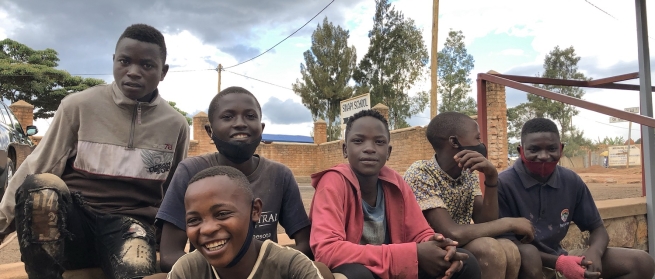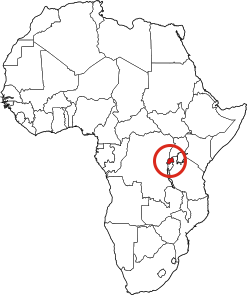RWANDA: ‘Tomorrow will be a better day’ program serves at-risk youth

Salesian missionaries provide education and social development services for street children
(MissionNewswire) Salesian missionaries in Rango, in the city of Butare, Rwanda, are working to help children who have been impacted by child labor, disease, hunger and mistreatment. The St. John Bosco Parish and Salesian Vocational Training Center have been in operation since 1996, providing education and social development services to help poor and at-risk youth. Missionaries provide education in several vocational courses including construction, tailoring, welding, carpentry, hotel-related skills, mechanics, cooking and hairdressing.
Many of the youth in Salesian programs in Rango are former street children. UNICEF noted that there were some 7,000 street children in Rwanda. The numbers have grown, however, due to the COVID-19 pandemic and resulting economic crisis, as well as from school closures and the rising incidence of domestic violence.
“They don’t go to school but survive by offering their labor and dedicating themselves to small trades and businesses. They ended up living on the street as a result of separations, mourning or simply because of too much misery,” said Father Daniel Antunez, president of Mission Don Bosco in Turin, Italy.
He added, “They carry heavy bags, fetch water, collect and sell pieces of metal, empty plastic bottles, glass. Most of them suffer from malnutrition and other diseases. They sleep with one eye open for fear that someone will steal the few, meager things they possess. They are frightened, abused, perennially tired, hungry.”
Salesians offer a specific program for street children known as Don Bosco Children Ejo Heza, which in the local language means “tomorrow will be a better day.” The program provides initial contact with youth living on the street and an invitation to access psychological, educational, and social rehabilitation that culminates in family reunification, if it’s possible. The program was launched in spring 2020.
“Children from the street started knocking on our parish door in Rango,” explained Fr. Antunez. “By word of mouth, as their comrades had been treated well, they now come in large numbers. We want them to go back to school and start living with their parents again because they have the right to a present as peaceful, trusting children and a future as respectable adults.”
After bravely overcoming the trauma of the 1994 genocide, Rwandans looking to transform their country have made remarkable progress. Still, much remains to be done. Close to 39 percent of Rwandans live in poverty, according to the World Bank. Rwanda is a rural, agrarian country with about 35 percent of the population engaged in subsistence agriculture with some mineral and agro-processing. Many of the country’s orphaned children are the tragic result of a violent civil war. Half of all children drop out of primary school and 2.2 million people—22 percent of the population—face critical food shortages.
###
Sources:
ANS Photo (usage permissions and guidelines must be requested from ANS)
ANS – Rwanda – “Ejo heza”: Salesians at work as “tomorrow will be better”
Salesians of Don Bosco AGL Province
Salesians of Don Bosco AGL Province Facebook
Salesian Missions – Rwanda
UNICEF – Rwanda





